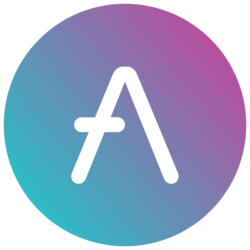Social finance platforms, the latest trend in crypto, are starting to experiment with more features in an effort to find a successful product-market fit. Only they might struggle to break away from the element of financial speculation that fueled their initial success.
Based on Coinbase’s Base platform, FriendTech was the first platform to kick off this new wave of social finance. It provides a space where users can purchase keys that give them access to influencers’ closed group chats. The price of the keys is on a bond curve, meaning the more are purchased, the more expensive they become. And the kicker? That there is a 10% fee on each transaction, divided between the creator of the platform and the influencer.
Unsurprisingly, this led to a wave of financial speculation. Top crypto influencers like Hsaka, Cobie and Dingaling rose to the top of the ranks and raked in hundreds of thousands of dollars in fees – with the platform’s creator, Racer, receiving $450,000 from those who trade their keys. In total, influencers earned $20 million through app fees, while Racer received an equivalent amount.
What’s striking about FriendTech is that while it has been by far the most successful social finance app – largely because it was the first mover with this particular recipe – it is still a pretty underdeveloped application. The application allows you to post messages in group chats and exchange keys, but that’s about it.
Yet FriendTech has added remarkably few features. Instead, other applications have emerged that offer a wider range of social and financial features.
A doubling of the social and financial aspects
For starters, Arbitrum-based PostTech was one such clone that introduced posting to a general feed, in a similar format to X (formerly Twitter). This is interesting because it’s a fairly basic functionality that creates the potential for crypto Twitter to migrate to a social finance app – assuming these platforms move beyond just a fad.
The Avalanche-based StarsArena, the second largest platform before a costly bug took it out, is in the middle of a reboot. One feature it offers is a tipping feature. This is a simple feature that allows users to get paid directly for their public posts on their own X-like feed.
While not strictly a new functionality, Arbitrum-based CipherRIP is experimenting with ways to encourage users to buy more keys (or cores as it calls them). New users must purchase at least five cores to be able to send a message (called a cipher) on the public feed. This may encourage more trading, although there is a risk of discouraging new users from giving it a try.
Experimenting with the financial aspect
Then there’s the Bitcoin Layer 2 NOS-based New Bitcoin City, which isn’t a FriendTech clone but is more of a social layer that has similar functionalities, while keyholders of other social finance protocols can use the same keys in the app. It is even more radical in the features it offers.
On the social level, the application offers DMs between influencers and their key holders, in addition to the group chat to which the key gives access. Additionally, influencers can play games with their keyholders and give them “red packets,” essentially buying them extra keys.
On the financial side, influencers can choose the fee they charge for the purchase and sale of their keys (between 0-8%) and how many keys are required to access their group chat.
New Bitcoin City also features a common tactic known as (3,3) – a name derived from the game theory element of the Olympus Protocol – where users of social finance apps buy each other’s keys in an attempt to increase both of their values, and potential fee income. The app has a function where you can make a (3,3) request that allows you to hold each other’s key for 30 days.
“Our goal is not to build another social media app or… [FriendTech] fork. Our goal is to build the social layer for crypto/web3/the new decentralized web,” New Bitcoin City said via DM on its app. “So that’s why we’re investing a lot in building ‘circle utilities’ so people can actually do things. together instead of just speculating on important prices.”
While this new wave of FriendTech-inspired applications offers new features and a demonstrably better experience, this may not be enough to achieve success. If FriendTech’s social gambling feature really matters, other smaller casinos – as you might characterize them – might find it a challenge to take over their business.
That said, some are already looking beyond that lofty goal.
“For example on [New Bitcoin City]our goal is not to compete against [FriendTech] and his forks. Our goal is to tackle X, Meta, Tiktok, etc. For the first time, we are using a crypto app that is so close to a regular consumer app,” they said. “I think crypto is now ready for the masses. “

























































![What Is Asset Tokenization? Types, Why It Matters Now [2025]](https://coininsights.com/wp-content/uploads/2025/05/asset_tokenization-360x180.png)


























where can i get cheap clomid without dr prescription where can i get generic clomid clomid prices in south africa can you get generic clomiphene without a prescription buy generic clomiphene how to get clomid without dr prescription get cheap clomiphene pills
The sagacity in this serving is exceptional.
Thanks towards putting this up. It’s well done.
purchase azithromycin – tinidazole 300mg pills metronidazole canada
buy semaglutide 14 mg pills – buy generic rybelsus 14 mg oral cyproheptadine
domperidone online buy – order tetracycline 250mg online flexeril canada